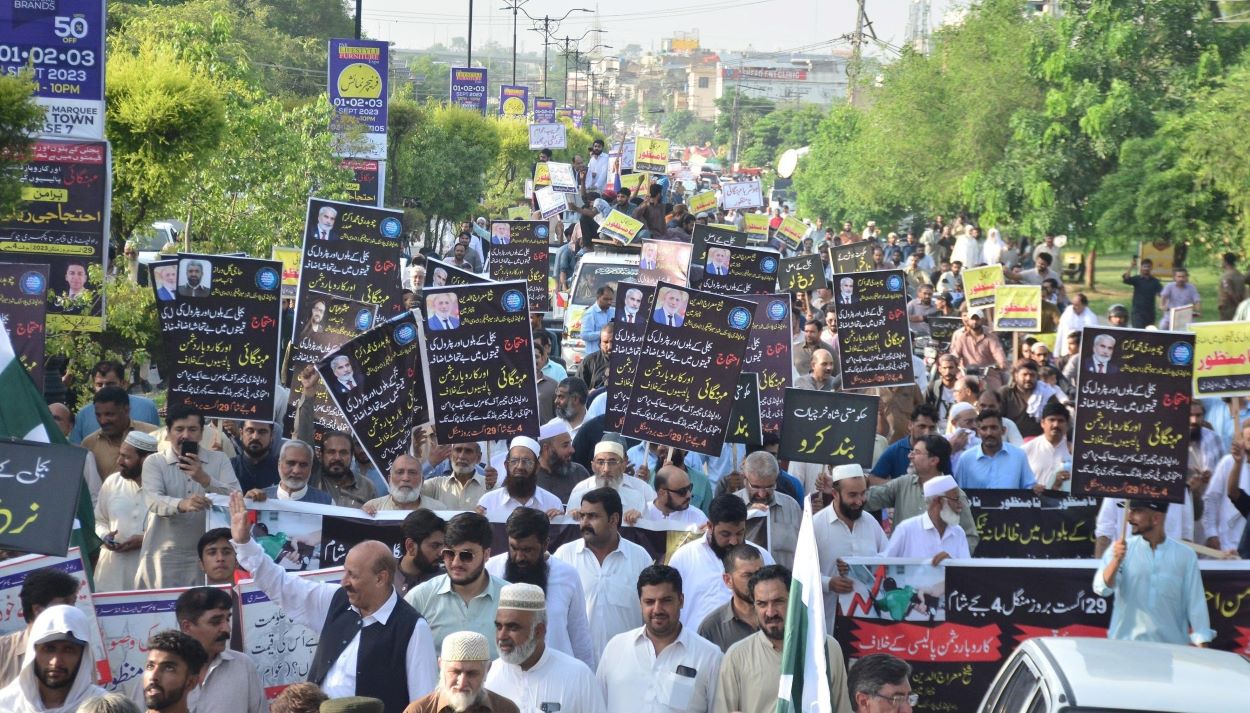The International Monetary Fund (IMF) postponed its decision to immediately approve Pakistan’s appeal to recover the electricity bills from August over six months. This delay comes amidst escalating protests across various parts of Pakistan. For five consecutive days, people rallied against the skyrocketing bills. The traders’ community also intensified these protests by joining them, further pressuring the government.
In a significant meeting with the IMF, Pakistani authorities sought approval to divide the bill from August into six instalments from October 2023 to March 2023. However, this proposal by the federal cabinet is contingent on the IMF’s prior approval.
The background to these protests lies in the Power Division’s proposal of recovering these bills in three monthly instalments. Their idea also suggested compensating power distribution firms via loans from commercial banks. However, this proposal did not receive the cabinet’s approval due to incomplete details and lack of IMF’s endorsement.
This proposal aimed to recover electricity bills, especially from consumers with a monthly consumption of up to 400 units. This bracket comprises 81% of the total consumers, or 31.4 million. Furthermore, it was revealed that the Power Division had implemented a two-month hike in the August bills, resulting in an increase of up to Rs16 per unit for some consumer categories.
IMF’s Concerns and Pakistan’s Commitments
Under the existing IMF programme, Pakistan is obligated to revise electricity prices periodically. Consequently, the maximum per unit rate for domestic consumers is Rs51, while for industrial and commercial users, it’s set at Rs47. A proposed increase of Rs4.37 per unit is due to the previous fiscal year’s quarterly tariff adjustment. Pakistan assured the IMF that the suggested six-installment recovery would not hinder payments to power producers. They plan to balance the revenue shortfalls of the power distribution firms by securing commercial loans. The interest generated from these loans would be managed by enhancing recoveries or using the budgeted subsidies.
Despite these assurances, the IMF remains skeptical. A cabinet member optimistically claims that spreading the bills over six months would incur a financial impact of less than Rs 10 billion.
However, an insider from the IMF meeting voiced concerns about the Power Division’s historical tendency to miss targets previously agreed upon with the IMF. There’s already an overreach in the power sector’s objectives, and the government has revised the quarterly circular debt reduction targets in agreement with the IMF. The initial plan of reducing Rs155 billion in circular debt by September this year has been overshadowed by the Power Division’s estimate of a Rs292 billion increase in the first quarter.






